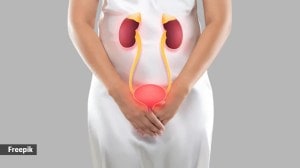Supersize sadness
According to the WHO,depression is the leading cause of disability as measured by the years lived with disability YLD.
According to the World Health Organization,depression is the leading cause of disability as measured by the years lived with disability YLD. By 2020,depression is projected to become the second leading cause for premature mortality and disability. Depression is prevalent among 121 million people worldwide. Occasionally,we all may feel sad or low,but these feelings may pass within a few days.
True depression includes sad,anxious,or empty feelings,loss of interest or pleasure in activities that were once enjoyed,feelings of guilt or low self-worth,irritability,insomnia or excessive sleeping,overeating or appetite loss,fatigue and decreased energy,feelings of hopelessness,suicidal thinking and difficulty in concentrating,remembering details and making decisions. When these problems become chronic or recurrent,they can lead to substantial impairments in an individuals ability to take care of his or her everyday activities.
In the 1970s,the jolly fat hypothesis reported a positive association between obesity and low levels of anxiety in men and women,and low levels of depression. Subsequently,several studies have been published on depression and obesity. While earlier studies found no significant association,it now appears that there is a back-and-forth link between depression and obesity.
Obesity is one of the most common health problems among individuals with mood disorders like bipolar depression and other depressive disorders.
Obesity appears to be linked with an increased risk of depression,say researchers. The link also works in the other direction. Floriana Luppino and a team of researchers 2010 reported that obese persons had a 55 per cent increased risk of developing depression over time,whereas persons with depression had a 58 per cent incre-ased risk of becoming obese. Some of the possible theories include:
Obesity is an inflammatory state and inflammation increases the risk of depression.
Obesity contributes to body dissatisfaction and low self-esteem.
Depression may increase weight by interfering with the endocrine system or through antidepressants side-effects.
Obesity may constitute a chronic stressful state,which in turn can cause significant physiological dysfunction. That might predispose an individual to depressed mood and associated symptoms.
Reduced motivation for physical activity,and overeating,particularly comfort foods rich in fats and sugars to improve moods,are common among depressed and anxious patients.
A study by the University of Washington in Seattle 2009 showed that depression,obesity,and alcohol abuse appear to be interrelated conditions among young women but not among young men. Together,the three have been referred to as the toxic triangle,with women appearing particularly vulnerable to them. Researcher Tuan-Ahn Nguyen,from the department of psychiatry at Maricopa Integrated Health System,in Phoenix,US,found that depression may be more strongly associated with obesity in women than in men. Overall,the obese women she studied were four times more likely than normal-weight women to be depressed. The gender difference is probably attributable to the greater importance of weight and shape in women than in men.
Obese men were only 2.54 times more likely to be depressed than non-obese men. A positive correlation between abdominal obesity and depressive symptoms was previously observed in a study of 59 middle-aged men.
Goodman and Whitaker 2002 showed that depressed adolescents were at increased risk of obesity too. In addition,in a study of 3,101 subjects aged 11 to 17 years,depressive symptoms were associated with obesity among both boys and girls.
Research published in The Proceedings of the Nutrition Society 2001 shows that certain dietary risk factors for physical illness are also risk factors for depression and cognitive impairment. Some beneficial nutrients to fight depression and obesity include omega-3 long-chain polyunsaturated fatty acids,antioxidant vitamins,folate and vitamin B12.
Using the food pyramid as a guide to eating a variety of foods including carbohydrates,protein and fat is beneficial. Space meals three to four hours apart,control portions and know when you are eating for reasons other than hunger. Eating regular meals and nutritious afternoon snacks may improve cognitive performance.
- 01
- 02
- 03
- 04
- 05































